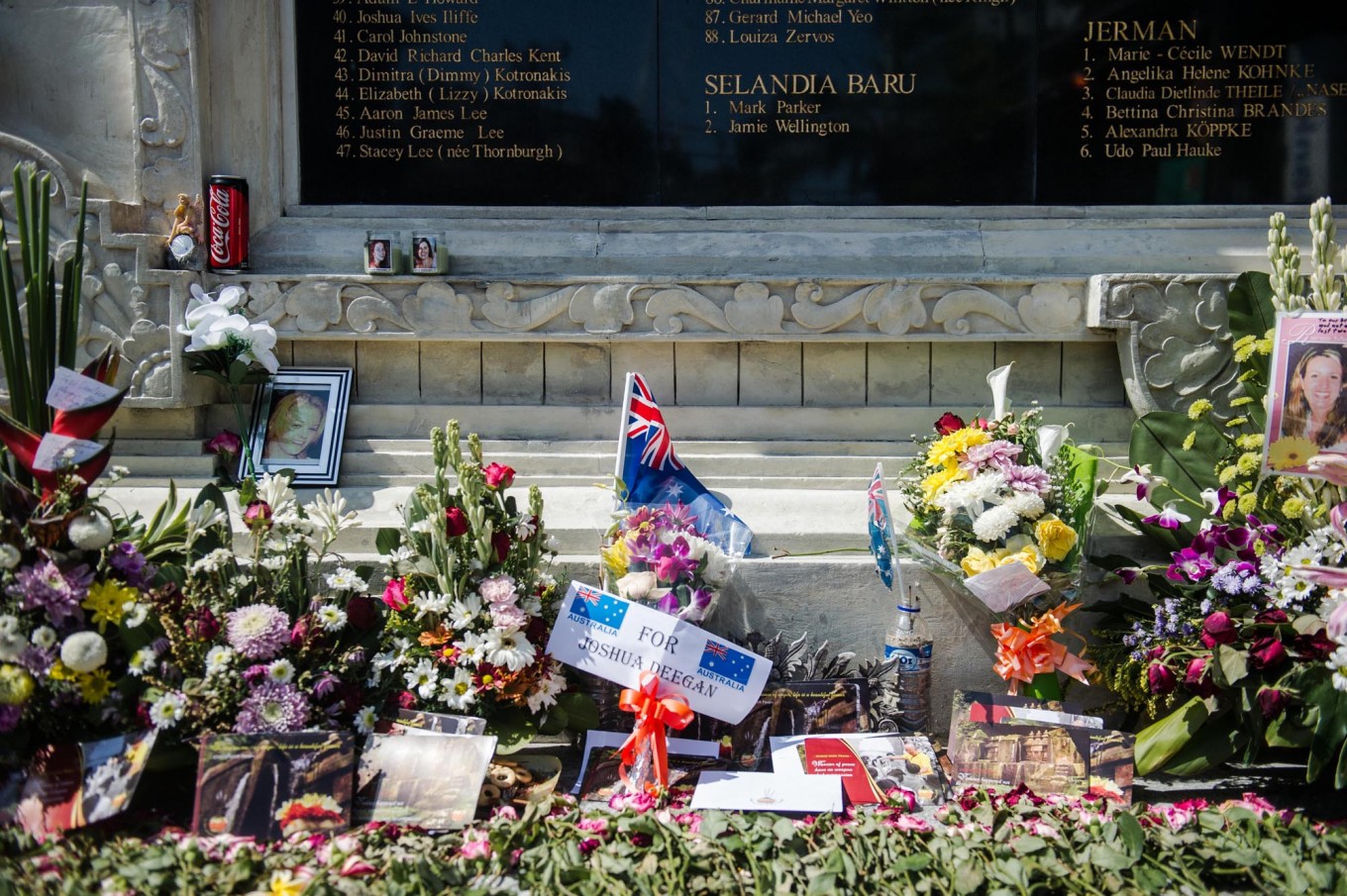Popular Reads
Top Results
Can't find what you're looking for?
View all search resultsPopular Reads
Top Results
Can't find what you're looking for?
View all search resultsUS charges Hambali over Bali bombings
The Indonesian Islamic extremist leader has been languishing for more than 14 years in the Guantanamo Bay detention center in Cuba, a fact that has elicited criticism from terror experts and rights groups.
Change text size
Gift Premium Articles
to Anyone
A
fter years in legal limbo, Indonesian Islamic extremist Riduan “Hambali” Isamuddin will be put on trial for his involvement in the 2002 Bali bombings and the 2003 Jakarta Marriott attack, the United States announced on Thursday.
US military prosecutors pressed charges against Hambali nearly 18 years after he and two others were captured in Thailand. He has spent more than 14 of the intervening years languishing in the high-security Guantanamo Bay detention camp (Gitmo) in Cuba, a fact that has sparked calls for his extradition to Indonesia.
Born as Encep Nurjaman, the Cianjur, Wes Java native was the leader of the Indonesian jihadist group Jemaah Islamiyah (JI) and is believed to have been Al-Qaeda's top representative in Southeast Asia.
JI, with support from Al-Qaeda, bombed tourist nightclubs in Bali on Oct. 12, 2002, killing 202. The group was also responsible for the Aug. 5, 2003, attack on the JW Marriott hotel in Jakarta, which left 12 dead and scores injured.
Malaysian nationals Mohammed Nazir Bin Lep and Mohammed Farik Bin Amin were also charged. They were Hambali’s top aides in JI and had been trained by Al-Qaeda, according to Gitmo case documents.
The men were put under the Central Intelligence Agency’s custody, where they were subjected to physical torture and other now-outlawed methods of interrogation before being transferred to Guantanamo Bay in 2006.
"The charges include conspiracy, murder, attempted murder, intentionally causing serious bodily injury, terrorism, attacking civilians, attacking civilian objects, destruction of property and accessory after the fact, all in violation of the law of war," the Pentagon wrote in a statement, as quoted by AFP.
Read also: New antiterror policy sparks fears of witch hunt
Terrorism experts and human rights groups have for years criticized Washington for its use of arbitrary detention and the ill treatment of Hambali and other detainees from the US “war on terror”.
“It is important to note that Hambali has been brutally tortured by the US and its allies on and off for about three years. Secondly, he has been detained for 18 years without trial, another form of human rights abuse against him,” said Sidney Jones, the director for the Institute for Policy Analysis of Conflict (IPAC), on Friday.
Several days earlier, local news outlets reported that US President Joe Biden’s nominee for secretary of defense, Lloyd J. Austin III, told US Senate committees of his intention to close Gitmo.
Roughly 780 prisoners have been sent to the facility since 2002. Forty detainees remain, and only nine have been charged with or convicted of crimes, according to the Guantanamo Docket.
Citing the rapidly deteriorating health of detainees who remained, along with the mental and physical harm inflicted on them in cruel and inhumane conditions, United Nations independent human rights experts also called for the closure of the high-security detention center.
“He might have been involved in the Bali bombings, but no human deserves to be treated the way he was. It might be best for him to be repatriated, although I have not heard of any such request from Indonesia,” Jones said.
The National Police could not be immediately reached for comment, but an official at the Law and Human Rights Ministry said that the authorities would certainly facilitate the extradition process if it was requested.
"We have yet to receive any request from law enforcers," said Sinta Simanjuntak, a spokesperson for the ministry’s directorate general for legal administration, on Friday.
It was also not immediately clear whether the US State Department had alerted the Indonesian government of Hambali's planned trial.
“We learned about this news from open sources, and it is [too early] to make any comment,” said Foreign Ministry spokesman Teuku Faizasyah on Friday.
In 2010, a request by the National Police to have Hambali returned to Indonesia to stand trial was turned down.
In 2016, Hambali’s plea to be released was also rejected, with US prosecutors saying that he still represented a “significant threat to the security of the United States”.
Read also: UN, Indonesia honor victims of terrorism
It remains unclear why, after years of delay, the charges before Guantanamo's military tribunal were announced on Thursday.
The charges were announced on the first full day of the Biden administration. When Biden was Barack Obama's vice president, they sought but failed to close the navy-run prison in Guantanamo and have the remaining prisoners either released or tried in US civilian courts.
Obama successor Donald Trump showed no interest in Gitmo and its inmates.
The US decision comes almost two weeks after Indonesian terror convict and firebrand cleric Abu Bakar Ba’asyir walked free after serving his prison sentence, coinciding with the government’s launch of a new policy to crack down on ideological extremists.
While Ba’asyir’s release and the slim possibility of Hambali’s repatriation have renewed concerns about a surge in violent extremist thought, Jones suggested otherwise. “JI has been weakened by waves of arrests against them,” she said.
“Moreover, jihad has been seen as counterproductive and forbidden in Indonesia. [...] So the issue of double jeopardy wouldn’t arise, and [Hambali] wouldn’t have the opportunity to influence other extremists."










